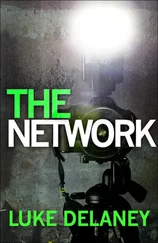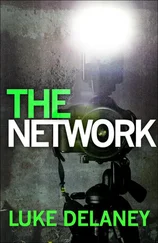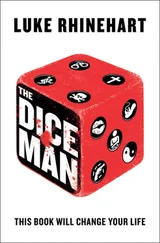Luke Rheinhart - The Diceman
Здесь есть возможность читать онлайн «Luke Rheinhart - The Diceman» весь текст электронной книги совершенно бесплатно (целиком полную версию без сокращений). В некоторых случаях можно слушать аудио, скачать через торрент в формате fb2 и присутствует краткое содержание. Жанр: Современная проза, на английском языке. Описание произведения, (предисловие) а так же отзывы посетителей доступны на портале библиотеки ЛибКат.
- Название:The Diceman
- Автор:
- Жанр:
- Год:неизвестен
- ISBN:нет данных
- Рейтинг книги:3 / 5. Голосов: 1
-
Избранное:Добавить в избранное
- Отзывы:
-
Ваша оценка:
- 60
- 1
- 2
- 3
- 4
- 5
The Diceman: краткое содержание, описание и аннотация
Предлагаем к чтению аннотацию, описание, краткое содержание или предисловие (зависит от того, что написал сам автор книги «The Diceman»). Если вы не нашли необходимую информацию о книге — напишите в комментариях, мы постараемся отыскать её.
The Diceman — читать онлайн бесплатно полную книгу (весь текст) целиком
Ниже представлен текст книги, разбитый по страницам. Система сохранения места последней прочитанной страницы, позволяет с удобством читать онлайн бесплатно книгу «The Diceman», без необходимости каждый раз заново искать на чём Вы остановились. Поставьте закладку, и сможете в любой момент перейти на страницу, на которой закончили чтение.
Интервал:
Закладка:
`I rule you are out of order, Dr. Rhinehart. Please sit down.'
Dr. Cobblestone stood erect at the end of the table and his face was neutral as he spoke these words. As the heads all swung back to me there was a total silence. When I spoke it was almost to myself.
The great Goddam machine society has made us all into hamsters. We don't see the worlds within us waiting to be born. Actors only able to play one role: whoever heard of such nonsense. We must create random men, dicepeople. The world needs dicepeople. The world shall have dicepeople.'
Someone had a firm grip on one of my arms and was pulling at me to come away from the table. About half the other doctors seemed to be standing now and jabbering to each other. I resisted the tug and raised my right arm with clenched fist and boomed out to old Cobblestone: `One more thing!' A fearful silence followed. All stared at me. I lowered my clenched fist and released the green die onto the doodle pad in front of me: a five.
`All right,' I said. `I'll leave.'
I picked up the die, replaced it in my vest pocket and left. I learned later that an entirely new sewage disposal system was rejected by unanimous vote and a system of temporary stop-gap repairs initiated to the satisfaction of no one.
Chapter Thirty-three
As the normal, healthy, neurotic reader knows, one of the chief delights of life is daydreaming. After careful study of my own fantasies and those of hundreds of dice students met in dice therapy, I have noted that our dreams at any moment act as a block or a boost to our playing different roles. Moreover, I have discovered that about every four years from childhood until death the average man changes the goals of his daydreams and that these changes evolve in a remarkably predictable pattern. Since all the dreams are in a way related to power, I am modestly suggesting that the phenomena be called the Rhinehart Power Pattern for Men.
Daydreams begin sometime in the child's first decade, usually around the age of eight or nine. At this age the boy inevitably projects himself in terms of raw power. Frequently he is faster than a speeding bullet, more powerful than a locomotive and can leap buildings at a single bound. He becomes the Ghenghis Khan of the fourth grade, the Attila the Hun of the local shopping center, the General George Patton of Cub Scout Local 216. His parents are being tortured to death in a horribly creative way: for example, over some tremendous fire at the end of sharpened spears they are being fried as marshmallows. Sometimes the child arrives in time to save his parents; sometimes, in fact most times, he arrives just too late and, after demolishing the villains, concentrates his imagination on himself marching in the middle of a giant state funeral procession bathed in tears. The procession is attacked by the enemy and he leaps with his sword . . .
By the age of thirteen the scene has usually shifted to Yankee Stadium, where the boy, playing for the hopeless Yankees, with the bases loaded, two outs and his team trailing by three runs in the last half of the ninth inning in the seventh game of the World Series, manages to stroke a 495-foot drive off the highest part of the fence in right center field and, with a fantastic flash around the bases and an impossible headfirst slide, just touches home plate with the extended uncut fingernail of his left pinky. In December, late in the fourth quarter and his team trailing by five points he runs back an intercepted pass 109 yards, carrying fourteen men over the goal line on his back, eleven opposition players, one incompetent referee and two fans who are already trying to congratulate him. In the spring, with two seconds left to win the game he sinks a one handed jump shot from the foul line, his own foul line.
In the world of sports, girls are absent, but by the age of sixteen or seventeen the stroke of a baseball has been replaced by other strokes, and the only ones intercepting passes are female. The boy has become a man, and the man is commander-in-chief of a harem. Here things go on beyond the wildest imagination of anyone - except that of the boy doing the dreaming. A woman, panting helplessly, flings her nude body onto the hero, who, puffing nonchalantly on a Corsican cigarette and tastefully sipping a glass of rare New York State wine, and steering his Aston-Martin at 165 miles-per hour down a rarely used road in the Alps, manages to give the girl the most exciting love experience of her life. If a male at the age of seventeen is sometimes once again Attila the Hun it is in order to round up the conquered Roman women and, twirling his sword and his mustache, choose fifteen or sixteen to spend the night with him. If he once again scores the winning touchdown, it is in order to walk dramatically into the senior prom, limping badly and trailing blood along the floor behind him like a leaky oil truck, and watch the women melt into gooey syrup at the sight of him.
But by the age of twenty-one our male is either engaged, married or sated; the world he wants to rule is a new world he has become Horatio Alger. With grim determination and uncanny acuity he invests fifty-six dollars in the stock market and after buying and selling with cool nonchalance over a period of six months, finally sells out, pocketing a cool $4,862,927.33. When the board of General Motors is panicked by the threat of disarmament he calmly presents his invention of an inexpensive jet sportscar built in the shape of a Polaris missile and getting fifty miles per gallon of jet fuel. In three weeks he is on the covers of Time, Fortune and Success! But in the next few years he is earning a modest salary as second clerk at Pierce, Perkins and Poof and is upset at the injustice and hypocrisy that exist in the world: a world in which some men are athletic stars, James Bonds and millionaires and he is not; he is morally appalled. In his dreams he recreates the world, righting all wrongs, eliminating suffering, redistributing wealth, redistributing women, ending all wars. He becomes a reincarnation of Mahatma Buddha. Jesus Christ and Hugh Hefner. Evil governments topple, corrupt churches collapse, laws are revised, and Truth, written in Xeroxed tablets of stone by our hero, is presented to the world. Every one is happy.
Except our hero, whose income continues to be modest. At the age of twenty-five he has reached the first apex of the Rhinehart Power Pattern for Men: the dream of reforming the world. By the age of twenty-eight or nine regression has begun. His wife is reminding him that the world is still unreformed and that other men are earning … et cetera. He returns to his dreams of success. Only now they are more modest, more limited. Now he rules only Pierce, Perkins and Poof and not General Motors. Now his coup on the stock market is only a thousand dollars, not four million. Middle age, like rigor mortis, has set in.
The regression continues: in three or four years he reassumes his position as managing director of a harem, but it isn't what it used to be. It is populated with secretaries, receptionists and, on particularly good days, a famous movie star. Jane Fonda, while protest picketing at Pierce, Perkins and Poof, takes one glance at him and drags him off to a commune where - but it doesn't seem quite real, so he returns to the conquering of the little telephone operator Maggie Blemish.
At the age of thirty-seven he suddenly resigns from Pierce, Perkins and Poof to join the New York Football Giants. The prospect of running 109 yards or dragging fourteen men on his back no longer seems as jolly as it did at the age of thirteen, so he joins the Giants as head coach. Although his team has finished dead last for six consecutive seasons and still has the same incompetent men, our male introduces a new spread formation with three running quarterbacks separated by thirty yards and a center who can hike the ball to any one of them, and the Giants, running new quadruple reverses off fake-draw quick kicks, all season, win fourteen straight. He takes over as head coach of the New York Hockey Rangers at midseason and, thanks to a revolutionary introduction of six men into the forward line - but the pattern is familiar.
Читать дальшеИнтервал:
Закладка:
Похожие книги на «The Diceman»
Представляем Вашему вниманию похожие книги на «The Diceman» списком для выбора. Мы отобрали схожую по названию и смыслу литературу в надежде предоставить читателям больше вариантов отыскать новые, интересные, ещё непрочитанные произведения.
Обсуждение, отзывы о книге «The Diceman» и просто собственные мнения читателей. Оставьте ваши комментарии, напишите, что Вы думаете о произведении, его смысле или главных героях. Укажите что конкретно понравилось, а что нет, и почему Вы так считаете.












